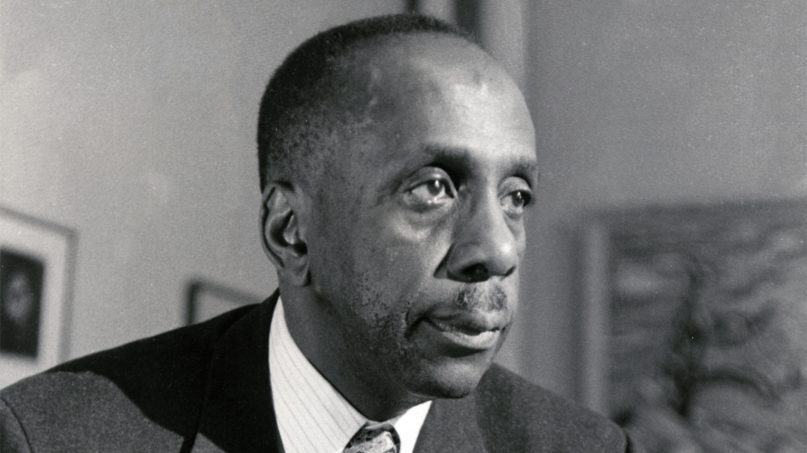(RNS) — A little-known theologian who mentored the Rev. Martin Luther King Jr. is the subject of a new documentary that highlights the influence the older man had on a range of civil rights leaders.
“Backs Against the Wall: The Howard Thurman Story,” a 55-minute film, highlights how King’s work and mission were shaped by the African-American mystic, theologian and prolific writer.
The film’s director, Martin Doblmeier, said that when King arrived at Boston University as a doctor of theology student, he was already aware of Thurman. Thurman, who was on the faculty at the university and served as dean of its chapel, had attended Morehouse College with King’s father, Martin Luther King Sr.
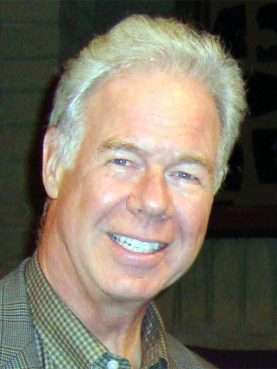
Filmmaker Martin Doblmeier. Photo courtesy of Journey Films
“What’s most important, I think, historically is not just the personal friendship but the fact that Martin Luther King Jr. would come and sit in those homilies and those lectures that Howard Thurman gave,” said Doblmeier. “He took voluminous notes because he really did believe that Howard Thurman had a lot to say and then would go on oftentimes and quote Howard Thurman in his speeches over the course of the next many years.”
The documentary is set to begin broadcasting on PBS television stations on Feb. 1 and to air on the World Channel on Feb. 8 at 9 p.m. ET.
It is the first of a planned trilogy of documentaries Doblmeier’s Journey Films is making about religious social activists, including Catholic Worker Movement leader Dorothy Day and rabbi and theologian Abraham Joshua Heschel.
The title of the Thurman film comes from a phrase Thurman, who died at 81 in 1981, used to describe oppressed people, including African-Americans, and how Christianity could speak to them.
“I would have to find out what was the word that the religion of Jesus had to say to the man with his back against the wall,” Thurman said in a clip from a BBC interview shown in the documentary.
King is said to have carried Thurman’s 1949 book “Jesus and the Disinherited” with him in his travels. It was Thurman’s explanation of his theology to uplift the oppressed.
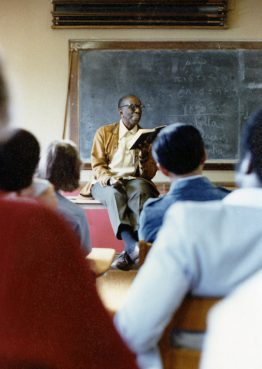
Howard Thurman teaches a college class. Thurman taught at both Howard University and Boston University.Photo courtesy of Emory University
Thurman emphasized the inherent worth and dignity of all people, often recounting a sermon of a slave preacher his grandmother recalled hearing who told his congregation they were God’s children and not slaves. King later recounted the anecdote in a sermon at his Dexter Avenue Baptist Church in Montgomery, Ala.
Thurman is seen in the documentary talking about the lesson he retained as a grandchild of a slave: “The creator of existence also created me and therefore with that sort of backing, I could absorb all the violences of life.”
The film features civil rights activists, including Jesse Jackson, Vernon Jordan and Otis Moss Jr., who attest to Thurman’s influence on King and on them.
Rep. John Lewis, D-Ga., who also worked with King, recalled that it was Thurman who provided King with a spiritual basis for nonviolence after visiting Mahatma Gandhi in India, shaping King’s strategy for resisting Jim Crow laws in the American South of the 1950s.
Thurman “came back (from India) speaking and talking about the philosophy and the discipline of nonviolence and he would preach and teach at colleges and universities, would give these unbelievable lectures,” Lewis recalled in the documentary. “It influenced Dr. King a great deal. He painted a picture. He made it real.”
Thurman helped King realize that nonviolence was not just a tactic, but a lifestyle, scholars and activists say. And the theologian, who practiced times of silence and contemplation, urged King to do the same.
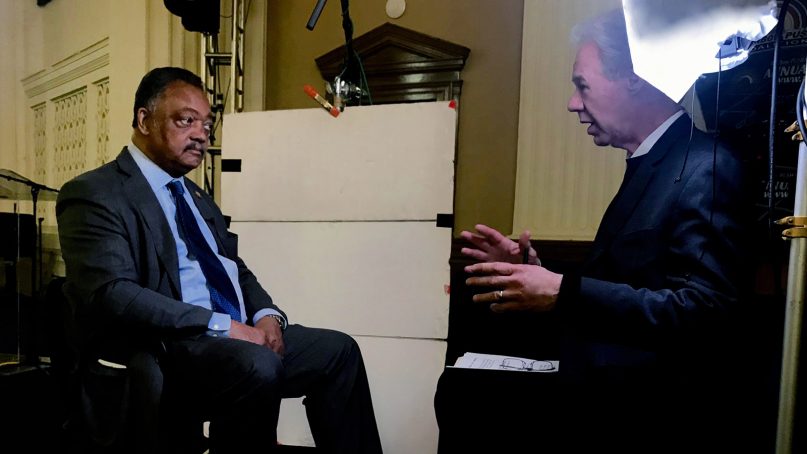
Filmmaker Martin Doblmeier, right, interviews Jesse Jackson for his documentary,“Backs Against the Wall: The Howard Thurman Story.” Photo courtesy of Journey Films
“I think Howard Thurman is emphatically interested in the spiritual well-being of Martin Luther King Jr., mainly because he senses again the tragic dimensions of this struggle and the danger that awaits one who dares to stand publicly and speak the truth to America,” said Walter Fluker, editor of five volumes of Howard Thurman’s papers, in the documentary.
Fluker, who holds a professorship named for King at Boston University School of Theology, told Religion News Service that Doblmeier’s project is “on the front end of a tidal wave” of interest in Thurman, who was committed to seeing how spirituality related to social transformation, equality and freedom, and full citizenship.
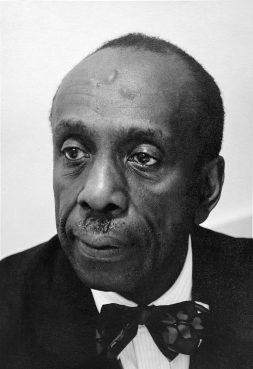
Howard Thurman had a large influence on the Rev. Martin Luther King Jr. Photo courtesy of Anton Wong
Another filmmaker, Arleigh Prelow, is in post-production for “The Psalm of Howard Thurman.” A biography, “Against the Hounds of Hell: A Life of Howard Thurman,” is set to be published by University of Virginia Press in 2020 by historian Peter Eisenstadt, a scholar featured in the documentary. Eerdmans is publishing in February a profile of 13 social justice pioneers called “Can I Get a Witness?” that features Thurman, and plans on a book focused solely on him in 2020.
As narrator, Doblmeier joined the scholars in the documentary in recalling how Thurman helped found an interracial and intercultural congregation in San Francisco, The Church for the Fellowship of All Peoples, in 1944. Set to speak at screenings sponsored by churches and seminaries, the filmmaker hopes the documentary will foster new conversations about bridging racial and cultural divides in the country, something that Thurman — and King — espoused.
“I think Thurman’s whole life was dedicated to the notion of building, creating, reimagining community,” Doblmeier said. “Those are ideas that I think really have a great deal to say to us right now.”
